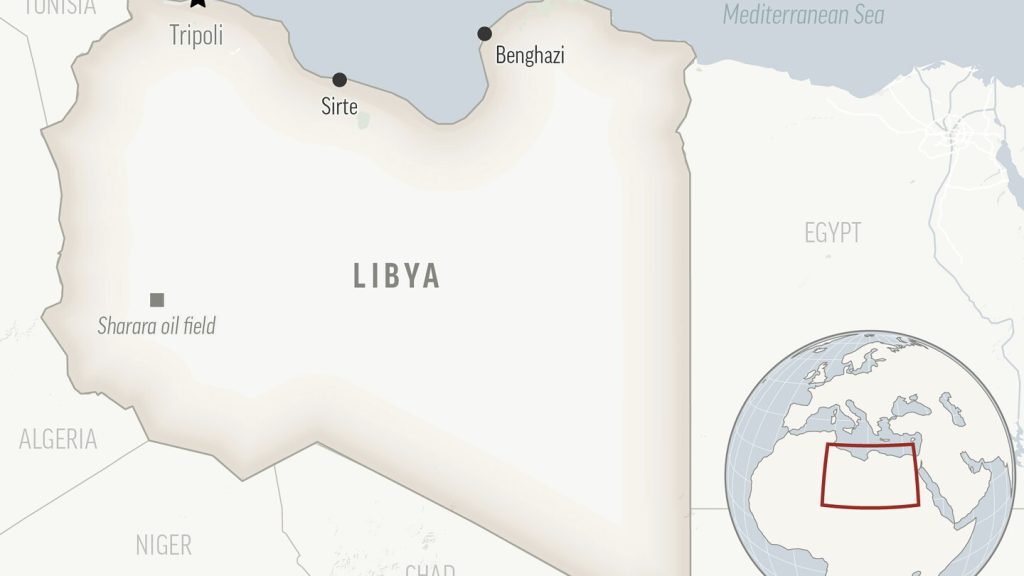The removal of Libya’s central bank governor by one of the country’s dueling authorities has sparked tensions in the divided North African nation. The presidential council in the capital of Tripoli, allied with Prime Minister Abdul Hamid Dbeibah’s government, unilaterally removed Gov. Sadiq al-Kabir and appointed Mohamed Abdul Salam al-Shukri as the new governor. Al-Kabir had been in charge of the central bank since 2011 and faced criticism for his handling of Libya’s oil money. The move to replace him has been met with backlash from authorities in the east of the country, further deepening the political divide in Libya.
Libya has been split between rival authorities in the east and west, each backed by different armed groups and foreign governments. The Central Bank plays a crucial role in managing the country’s oil revenue and foreign reserves. The institution has been a point of contention since 2014 when it splintered along political fault lines, with one branch in Tripoli and another in Benghazi. The recent decision to remove al-Kabir has reignited tensions between the opposing factions, highlighting the challenges facing Libya’s fragile political landscape.
Despite the removal of al-Kabir, Libya’s east-based parliament and the Supreme Council of State in Tripoli have denounced the move as illegitimate. They argue that the decision to appoint a new governor should involve all relevant bodies, as outlined in interim regulations agreed upon under U.N.-backed talks. The lack of consensus on key appointments underscores the ongoing struggle for power and control in Libya, with different factions vying for influence in the war-torn country. The unilateral decision by the presidential council has further complicated efforts to achieve national reconciliation.
The international community has closely monitored developments in Libya, given the country’s strategic importance in the region. The central bank governor plays a crucial role in managing Libya’s finances and ensuring stability in an economy heavily reliant on oil revenue. The sudden removal of al-Kabir has raised concerns about the potential impact on the country’s economic stability and prospects for recovery. With Libya facing numerous challenges, including political fragmentation, security threats, and economic woes, the need for strong leadership and effective governance has never been more critical.
The power struggle over key institutions like the central bank reflects broader tensions within Libyan society, as rival factions vie for control amid ongoing conflict. The protracted instability in the country has fueled humanitarian crises, with millions of Libyans facing food insecurity, displacement, and limited access to basic services. Despite efforts by the international community to broker peace and facilitate dialogue between conflicting parties, the situation in Libya remains volatile and uncertain. The removal of al-Kabir is just the latest chapter in the country’s turbulent political history, underscoring the complexity of the challenges facing Libya and the urgent need for a unified and inclusive approach to rebuilding the nation.
As Libya grapples with internal divisions and external interference, the plight of its people hangs in the balance. The unilateral decision to remove the central bank governor has further exacerbated tensions and highlighted the urgent need for a comprehensive and sustainable political solution. The international community must continue to support efforts towards national reconciliation and stability in Libya, recognizing the importance of inclusive governance and respect for the rule of law. Ultimately, the future of Libya hinges on the ability of its leaders to put aside their differences, prioritize the interests of the people, and work towards a peaceful and prosperous future for all Libyans.


